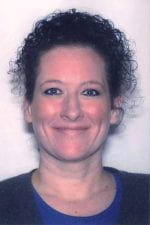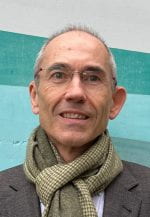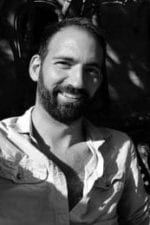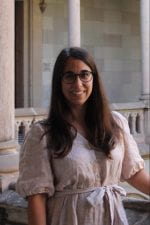
Jen Krizman, PhD
Northwestern University
Jennifer Krizman is a research associate professor at Northwestern University. She studies how biology and experience influence the auditory, cognitive, and linguistic processes listeners engage to understand speech in everyday settings. To study this, she uses the frequency-following response, an objective electrophysiological measure of auditory processing, together with behavioral assessments of executive, language and listening abilities. Her work focuses on how language experience, such as the number of languages a person speaks, influences speech understanding. The aim of her research is to improve human communication.

Nina Kraus, PhD
Northwestern University
Nina Kraus is Hugh Knowles Professor of Communication Sciences, Neurobiology, and Otolaryngology at
Northwestern University. As a biologist and amateur musician, she thinks about sound and brain health.
Her research has found that our lives in sound, for better (musicians, bilinguals) and for worse (concussion, hearing loss, language disorders, noise), shape how our brain makes sense of the sounds we hear. Her book OF SOUND MIND – How our Brain Constructs a Meaningful Sonic World, was written for the intellectually curious.
Kraus advocates for biologically informed choices in education, health, and society.

Joseph Luetkehans
Northwestern University
Joe Luetkehans is a PhD student in Communication Sciences and Disorders at Northwestern University. He received his B.S. in Neuroscience at Carnegie Mellon University in 2022. His research interests focus on how our physical and auditory experience, and engagement with the arts, shapes the way our brain processes sound.

Carles Escera, PhD
University of Barcelona, Institute of Neurosciences Institut de Recerca Sant Joan de Déu (IRSJD)
Carles Escera is Professor of Cognitive Neuroscience at the Department of Clinical Psychology and Psychobiology of the University of Barcelona (Spain). He is also ICREA Acadèmia Distinguished Professor. He graduated in Psychology in 1987 and received his PhD in 1993 at the same university and belongs to its Institute of Neurosciences. His research focusses on the neural mechanisms of human auditory cognition, with particular interest in the contribution of the subcortical auditory system and in developmental aspects.

Jordi Costa-Faidella, PhD
University of Barcelona, Institute of Neurosciences Institut de Recerca Sant Joan de Déu (IRSJD)
Jordi Costa Faidella is an Associate Professor of Cognitive Neuroscience at the Department of Clinical Psychology and Psychobiology of the University of Barcelona (UB; Spain). He graduated in Psychology in 2007 and received his PhD in 2011 at the same university. He is a member of the UB Institute of Neuroscience and performs his research at the Brainlab – Cognitive Neuroscience Research Group (UB; PI: Carles Escera). His research focuses on the neural mechanisms of human auditory cognition, with particular interest in studying the role of the cerebellum in integrating auditory and somatomotor activity to control the production of pitched sounds.

Natàlia Gorina-Careta, PhD
University of Barcelona, Institute of Neurosciences Institut de Recerca Sant Joan de Déu (IRSJD)
Sonia Arenillas-Alcón
University of Barcelona
Marta Puertollano
University of Barcelona
Jose Valenzuela
University of Barcelona
Samantha López
University of Barcelona
Raquel Aparicio
University of Barcelona
Judith Domínguez-Borràs
University of Barcelona
